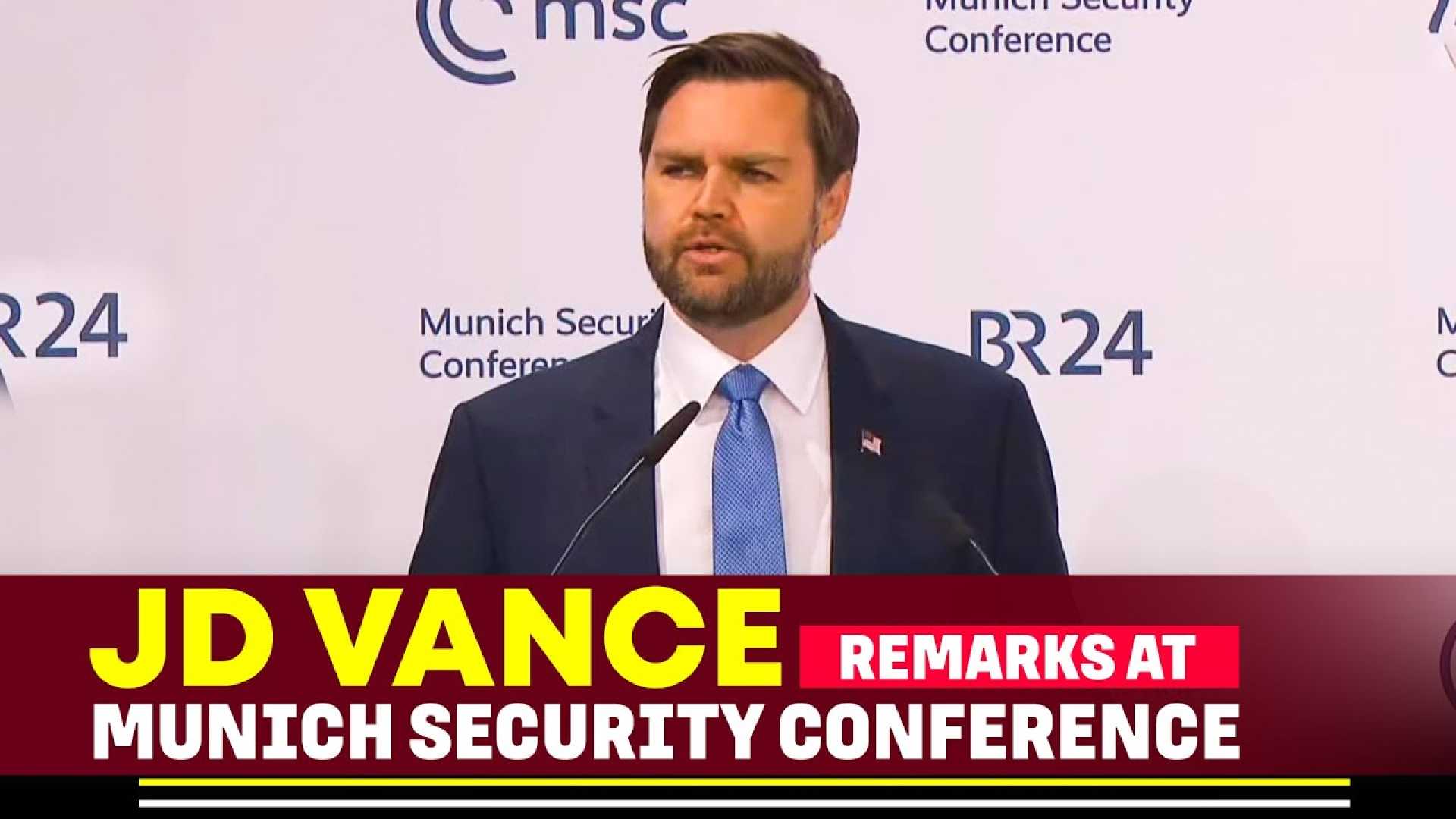Politics
Tensions Mount as VP Critiques Europe at Munich Security Conference

MUNICH, Germany — Tensions flared at the Munich Security Conference on Friday as Vice President Vance publicly criticized European leaders on several socio-political issues, from free speech to security and mass migration. The vice president’s remarks reflected a growing rift between the United States and its European allies amid ongoing concerns about the invasion of Ukraine and Russia’s influence in the region.
Addressing an audience filled with international dignitaries, Vance stated, “The threat that I worry the most about vis-à-vis Europe is not Russia. It’s not any external actor. What I worry about is the threat from within — the retreat of Europe from some of its most fundamental values, values shared with the United States of America.” His comments met with a mixed response, eliciting scattered applause and some groans.
Vance further questioned European leaders’ priorities, asking, “What has seemed a little bit less clear to me … is what exactly you’re defending yourselves for?” This critique was sharply rebuffed by German Defense Minister Boris Pistorius, who labeled the remarks as “not acceptable,” stating, “This is not the democracy that I witness every day in our parliament.”
Concerns over the deteriorating U.S.-European relations intensified following accusations against President Trump for excluding Kyiv and European nations from negotiations to end the war in Ukraine. In the wake of Vance’s speech, German President Frank-Walter Steinmeier expressed deep concerns, asserting that “the new American administration has a very different world view to ours,” and that it undermines established norms and trust.
“We have to accept that and we can deal with it. But I am convinced that it is not in the interests of the international community for this worldview to become the dominant paradigm,” Steinmeier said during his remarks at the conference.
European Commission President Ursula von der Leyen emphasized the need for accountability, urging the international community to hold Russian President Vladimir Putin liable for his actions in Ukraine. “Great challenges loom,” she warned, referencing the ongoing conflict that has escalated tensions across the continent.
Ukrainian President Volodymyr Zelenskyy also voiced his concerns, stating that he had warned the U.S. against trusting Putin. “I said to him that he is a liar,” Zelenskyy recounted, adding that any peace negotiations must include Ukraine and not exclude its leadership: “Ukraine must negotiate from a position of strength.”
These comments came against a backdrop of increasing anxiety about potential military initiatives from Moscow should it succeed in Ukraine. Zelenskyy reiterated that only comprehensive guarantees from NATO would assure Ukraine’s security and willingness to engage in diplomacy.
Vance, in an interview prior to his speech, hinted that the U.S. might utilize sanctions and military leverage against Russia to ensure Ukraine’s sovereign independence but did not elaborate further during the conference itself. German Foreign Minister Annalena Baerbock criticized any peace initiatives that exclude Ukrainian interests, stating, “A sham peace — over the heads of Ukrainians and Europeans — would gain nothing.”
As European leaders tightened their stance against the Trump administration, the implications of this divide could have lasting impacts on international relations, especially regarding collective security measures and ongoing conflicts in Eastern Europe.












